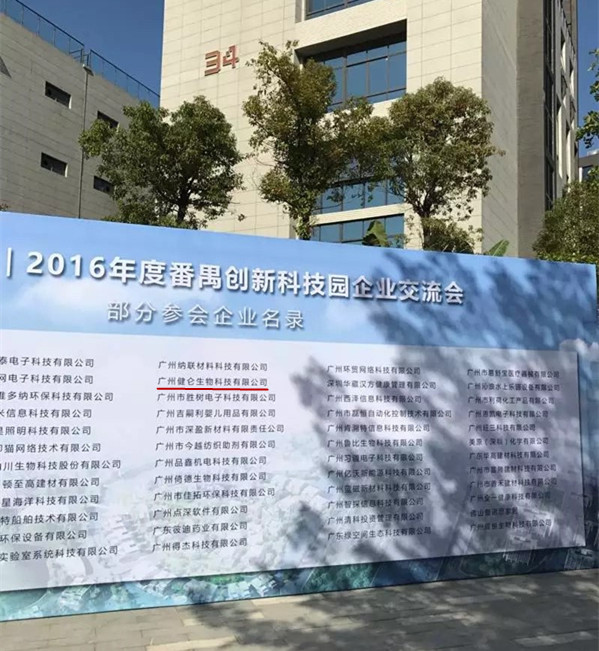- 产品描述
进口Cellabs卡氏肺孢子虫免疫荧光检测试剂
广州健仑生物科技有限公司
广州健仑长期供应各种生物原料,主要代理品牌:美国Seracare、西班牙Certest、美国Fuller、美国NOVABIOS、 Cellabs等等。
Cellabs公司是一个的生物技术公司,总部位于澳大利亚悉尼。专门研发与生产针对热带传染性疾病的免疫诊断试剂盒。其产品40多个国家和地区。1998年,Cellabs收购TropBio公司,进一步巩固其在研制热带传染病、寄生虫诊断试剂方面的位置。
进口Cellabs卡氏肺孢子虫免疫荧光检测试剂
该公司的Crypto/Giardia Cel IFA是国标*推荐的两虫检测IFA染色试剂、Crypto Cel Antibody Reagent是UK DWI水质安全评估检测的*抗体。
主要产品包括:隐孢子虫诊断试剂,贾第虫诊断试剂,疟疾诊断试剂,衣原体检测试剂,丝虫诊断试剂,锥虫诊断试剂等。
广州健仑生物科技有限公司与cellabs达成代理协议,欢迎广大用户咨询订购。
我司还提供其它进口或国产试剂盒:登革热、疟疾、流感、A链球菌、合胞病毒、腮病毒、乙脑、寨卡、黄热病、基孔肯雅热、克锥虫病、违禁品滥用、肺炎球菌、军团菌、化妆品检测、食品安全检测等试剂盒以及日本生研细菌分型诊断血清、德国SiFin诊断血清、丹麦SSI诊断血清等产品。
欢迎咨询
欢迎咨询2042552662
【Seracare产品介绍】
货号 | 产品名称 | 产品描述 | 规格 | |
免疫荧光试剂盒(IFA kit) | ||||
KR1 | Crypto Cel | 隐孢子虫(Cryptosporidium)间接免疫荧光检测试剂 | 50 Test | |
KR2 | Crypto/Giardia Cel | 隐孢子虫&贾第虫(Cryptosporidium & Giardia)间接免疫荧光检测试剂 | 50 Test | |
KG1 | Giardia Cel | 贾第虫(Giardia)间接免疫荧光检测试剂 | 50 Test | |
KC1 | Chlamydia Cel | 沙眼衣原体(Chlamydia trachomatis)间接免疫荧光检测试剂 | 50 Test | |
KC2 | Chlamydia Cel LPS | 衣原体 lipopolysaccharide (LPS)间接免疫荧光检测试剂 | 50 Test | |
KC3 | Chlamydia Cel Pn | 肺炎衣原体(Chlamydia pneumoniae)间接免疫荧光检测试剂 | 50 Test | |
KP1 | Pneumo Cel | 卡氏肺孢子虫(Pneumocystis carinii)间接免疫荧光检测试剂 | 50 Test | |
KP2 | Pneumo Cel Indirect | 卡氏肺孢子虫( Pneumocystis carinii)间接免疫荧光检测试剂 | 50 Test | |
酶免试剂盒 ELISA kit | ||||
KG2 | Giardia CELISA | 贾第虫(Giardia)ELISA kit | 96 Test | |
KE1 | Entamoeba CELISA Path | 溶组织内阿米巴(Entamoeba histolytica) ELISA kit | 96 Test | |
KF1 & KF2 | Filariasis CELISA | 班氏丝虫(Wuchereria bancrofti ) ELISA kit |
| |
KM2 | Malaria Antigen (HRP2) CELISA | 恶性疟原虫(Plasmodium falciparum) 抗原 ELISA kit | 192 Test | |
KMC3 | Pan Malaria Antibody CELISA | 间日、三日、恶性及卵形疟疾(Malaria)ELISA IgG kit | 192 Test | |
KT2 | T. cruzi IgG CELISA | 克氏锥虫(Trypanosoma cruzi) ELISA IgG kit | 192 Test | |
KT3 | Toxocara IgG CELISA | 弓首线虫(Toxocara canis) ELISA IgG kit | 192 Test | |
KF3 | Filariasis Ab (Bm14) CELISA | 淋巴丝虫病(lymphatic filariasis) ELISA IgG kit | 480 Test | |
KM7 | Quantimal™ pLDH Malaria CELISA | 疟疾pLDH抗体检测 ELISA kit | 96 Test | |
二维码扫一扫
【公司名称】 广州健仑生物科技有限公司
【】 杨永汉
【】
【腾讯 】 2042552662
【公司地址】 广州清华科技园创新基地番禺石楼镇创启路63号二期2幢101-3室
【企业文化】



由此说明,纹状体内存在乙酰胆碱递质系统,其 功能的加强将导致震颤麻痹症状的出现。总结以上的研究结果,目前 认为黑质上行抵达纹状体的多巴胺递质系统的功能,在于抑制纹状体 内乙酰胆碱递质系统的功能;震颤麻痹患者由于多巴胺递质系统功能 受损,导致乙酰胆碱递质系统功能的亢进,才出现一系列症状。如果 应用左旋多巴以增强多巴胺的合成,或应用M型受体阻断剂以阻断乙酰 胆碱的作用,均能治疗震颤麻痹。在正常情况下,黑质上行抵达纹状 体的多巴胺递质系统还与行为觉醒有关。动物实验观察到,单纯破坏 中脑黑质多巴胺递质系统后,则动物在行为上不能表现觉醒,对新异 的刺激不能表现探究行为。震颤麻痹患者面部表情呆板,可能就是行 为觉醒发生障碍的表现。舞蹈病患者的主要临床表现为不自主的上肢 和头部的舞蹈样动作,并伴有肌张力降低等。病理研究证明,患者纹 状体严重萎缩,而黑质-纹状体通路是完好的。在这类患者,若采用左 旋多巴进行治疗反而使症状加剧,而用利血平耗竭多巴胺递质却可使 症状缓解。神经生化的研究发现,患者纹状体中胆碱能神经元和γ-氨 基丁酸能神经元的功能明显减退。因此认为,舞蹈病病变主要是纹状 体内的胆碱能和γ-氨基丁酸能神经元功能减退,而黑质多巴胺能神经 元功能相对亢进,这和震颤麻痹的病变机制正好相反。目前知道,黑 质和纹状体之间是有环路的:黑质的多巴胺能上行系统能抑制纹 状体内胆碱能和γ-氨基丁酸能系统的活动;而纹状体的γ-氨基丁酸 下行系统能反馈抑制黑质的多巴胺能系统的活动(图11-16)。临床治 疗震颤麻痹时,如左旋多巴用得过量则可引起类似舞蹈病的症状,也 说明上述的观点是有道理的。壳核和尾状核通过大量条纹状细胞桥互 相连接,所以得名纹状体。根据发生的早晚可分为新、旧纹状体,新 纹状体指豆状核的壳和尾状核,旧纹状体指苍白球,纹状体属锥体外 系的结构,与骨骼肌的活动有关。 在发生学上比较年轻,包括尾状核 及壳核,它们起源于端脑。在这两个神经细胞团中,含有大量的小细 胞和较少的大细胞。
This shows that there is an acetylcholine transmitter system in the striatum, and its enhanced function will lead to the appearance of paralysis symptoms. Summing up the above research results, it is currently believed that the function of the dopamine transmitter system of the substantia nigra arriving at the striatum is to inhibit the function of the acetylcholine transmitter system in the striatum; in patients with tremor paralysis, the function of the dopamine transmitter system is impaired, resulting in the transmission of acetylcholine. Only when the quality of the system functions, can a series of symptoms appear. If levodopa is used to enhance dopamine synthesis, or if an M-type receptor blocker is used to block the effects of acetylcholine, tremor paralysis can be treated. Under normal conditions, the dopamine transmitter system that the substantia nigra arrives at the striatum is also associated with behavioral arousal. Animal experiments have observed that after simply destroying the dopamine neurotransmitter system of the substantia nigra, the animals cannot behave awake in their behavior, and they can't express inquiry behavior for novel stimuli. The facial expression of a paralyzed paralyzed patient may be a manifestation of an arousal disorder. The main clinical manifestations of patients suffering from chorea are involuntary dance-like movements of the upper limbs and head, accompanied by decreased muscle tone. Pathological studies have demonstrated that the patient's striatum is severely atrophied and the nigro-striatal pathway is intact. In these patients, treatment with levodopa may worsen the symptoms, while depletion of dopamine transmitters with reserpine can relieve symptoms. Neurochemical studies have shown that the function of cholinergic and γ-aminobutyric acid neurons in the striatum of patients is significantly reduced. Therefore, it is believed that choriopathic lesions are mainly cholinergic and gamma-aminobutyric acid neuronal dysfunction in the striatum, and the substantia nigra dopaminergic neuronal function is relatively hyperactive, which is contrary to the pathogenesis of tremor paralysis. It is currently known that there is a looping link between the substantia nigra and the striatum: the dopaminergic ascending system of the substantia nigra inhibits the activity of cholinergic and gamma-aminobutyric acid energy systems in the striatum; whereas striatal The down-stream system of gamma-aminobutyric acid can feedback inhibit the activity of the dopaminergic system of the substantia nigra (Figure 11-16). When clinical therapy is used to paralyze paralysis, the use of excessive amounts of levodopa may cause symptoms similar to those of chorea. This also makes sense. The putamen and caudate nucleus are connected to each other by a large number of striped cell bridges, so the striatum is named. According to the occurrence of early and late can be divided into new and old striatum, the new striatum refers to the lenticular nucleus of the shell and caudate nucleus, the old striatum refers to the globus pallidus, striatum is the extrapyramidal structure, and skeletal muscle Related activities. It is relatively young in herogenesis, including caudate nucleus and putamen, which originated in the encephalon. In these two nerve cell clusters, there are a large number of small cells and fewer large cells.



